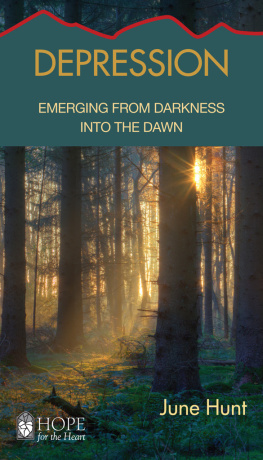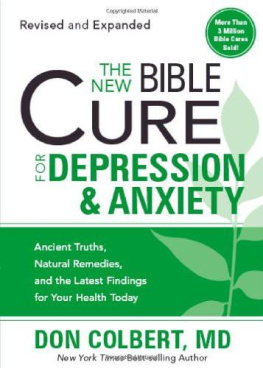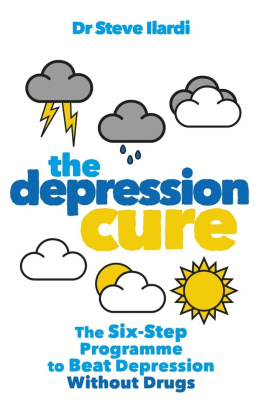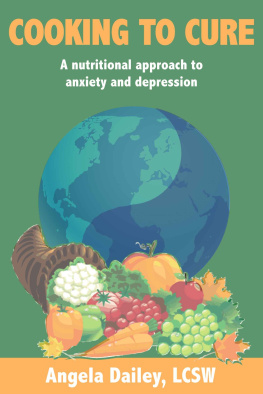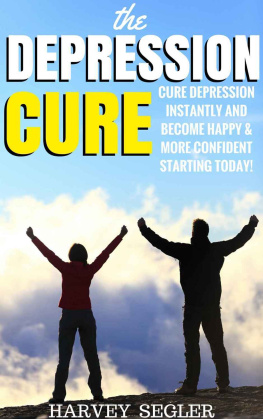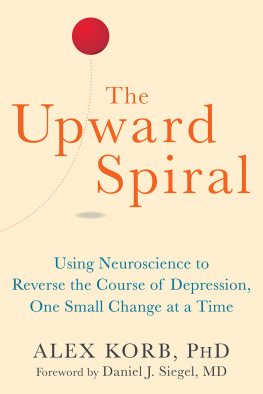Alex Riley - A Cure for Darkness: The Story of Depression and How We Treat It
Here you can read online Alex Riley - A Cure for Darkness: The Story of Depression and How We Treat It full text of the book (entire story) in english for free. Download pdf and epub, get meaning, cover and reviews about this ebook. year: 2021, publisher: Scribner, genre: Non-fiction. Description of the work, (preface) as well as reviews are available. Best literature library LitArk.com created for fans of good reading and offers a wide selection of genres:
Romance novel
Science fiction
Adventure
Detective
Science
History
Home and family
Prose
Art
Politics
Computer
Non-fiction
Religion
Business
Children
Humor
Choose a favorite category and find really read worthwhile books. Enjoy immersion in the world of imagination, feel the emotions of the characters or learn something new for yourself, make an fascinating discovery.

- Book:A Cure for Darkness: The Story of Depression and How We Treat It
- Author:
- Publisher:Scribner
- Genre:
- Year:2021
- Rating:5 / 5
- Favourites:Add to favourites
- Your mark:
- 100
- 1
- 2
- 3
- 4
- 5
A Cure for Darkness: The Story of Depression and How We Treat It: summary, description and annotation
We offer to read an annotation, description, summary or preface (depends on what the author of the book "A Cure for Darkness: The Story of Depression and How We Treat It" wrote himself). If you haven't found the necessary information about the book — write in the comments, we will try to find it.
Alex Riley: author's other books
Who wrote A Cure for Darkness: The Story of Depression and How We Treat It? Find out the surname, the name of the author of the book and a list of all author's works by series.
A Cure for Darkness: The Story of Depression and How We Treat It — read online for free the complete book (whole text) full work
Below is the text of the book, divided by pages. System saving the place of the last page read, allows you to conveniently read the book "A Cure for Darkness: The Story of Depression and How We Treat It" online for free, without having to search again every time where you left off. Put a bookmark, and you can go to the page where you finished reading at any time.
Font size:
Interval:
Bookmark:
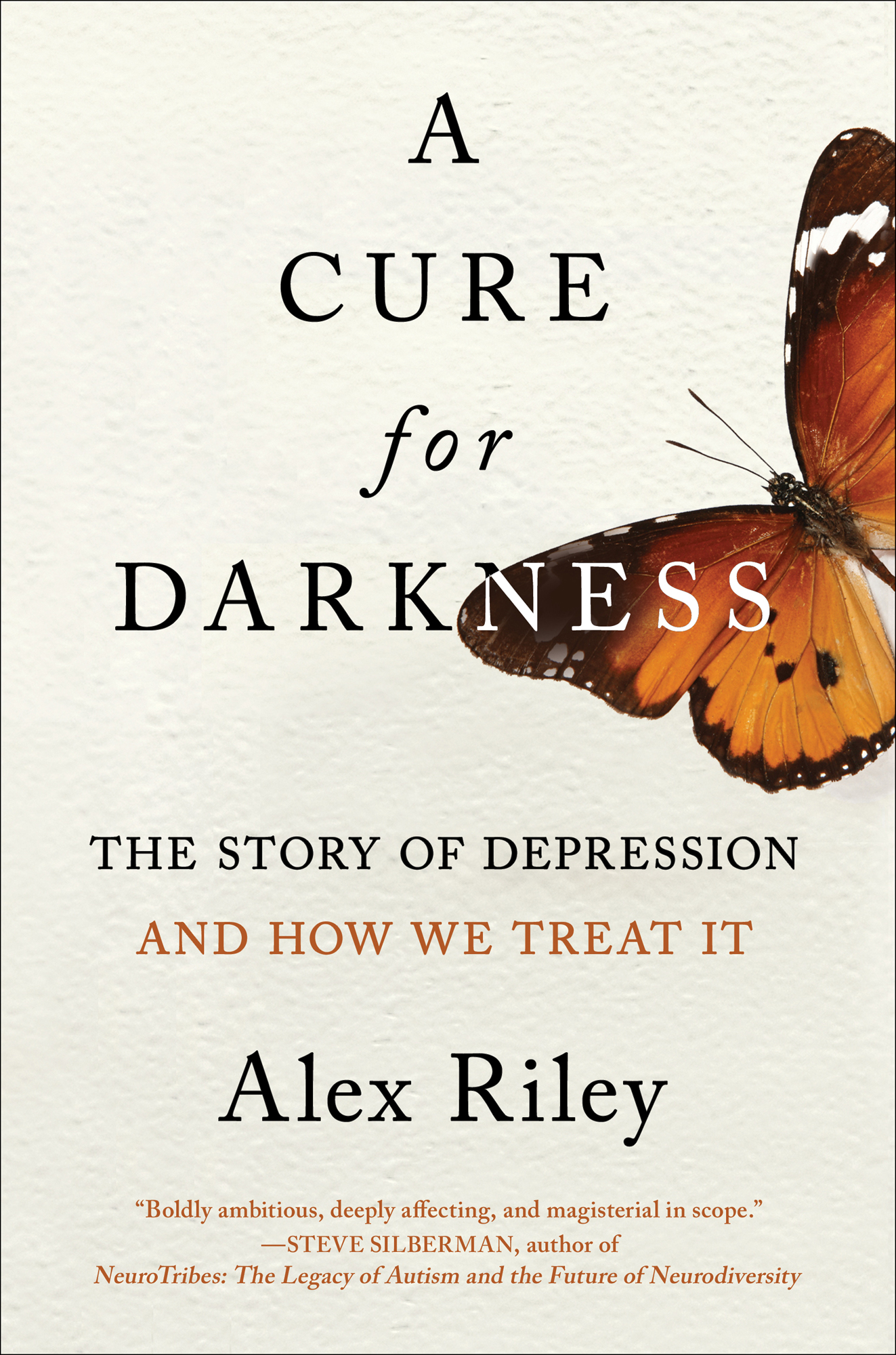
A Cure for Darkness
The Story of Depression and How We Treat It
Alex Riley
Boldly ambitious, deeply affecting, and magisterial in scope.
Steve Silberman, author of Neuro Tribes: The Legacy of Autism and the Future of Neurodiversity

This publication contains the opinions and ideas of its author. It is intended to provide helpful and informative material on the subjects addressed in the publication. It is sold with the understanding that the author and publisher are not engaged in rendering medical, health, or any other kind of personal professional services in the book. The reader should consult his or her medical, health, or other competent professional before adopting any of the suggestions in this book or drawing inferences from it.
The author and publisher specifically disclaim all responsibility for any liability, loss, or risk, personal or otherwise, which is incurred as a consequence, directly or indirectly, of the use and application of any of the contents of this book.

Scribner
An Imprint of Simon & Schuster, Inc.
1230 Avenue of the Americas
New York, NY 10020
www.SimonandSchuster.com
Copyright 2021 by Alex Riley
All rights reserved, including the right to reproduce this book or portions thereof in any form whatsoever. For information, address Scribner Subsidiary Rights Department, 1230 Avenue of the Americas, New York, NY 10020.
First Scribner hardcover edition April 2021
SCRIBNER and design are registered trademarks of The Gale Group, Inc., used under license by Simon & Schuster, Inc., the publisher of this work.
For information about special discounts for bulk purchases, please contact Simon & Schuster Special Sales at 1-866-506-1949 or .
The Simon & Schuster Speakers Bureau can bring authors to your live event. For more information or to book an event, contact the Simon & Schuster Speakers Bureau at 1-866-248-3049 or visit our website at www.simonspeakers.com.
Jacket design by Jaya Miceli
Jacket photograph by Richard Newstead/Getty Images
Library of Congress Cataloging-in-Publication Data has been applied for.
ISBN 978-1-5011-9877-9
ISBN 978-1-5011-9879-3 (ebook)
A portion of this book was previously published in a different form in How a Wooden Bench in Zimbabwe Is Starting a Revolution in Mental Health by Alex Riley in Mosaic in 2018, used under CC BY 4.0 (https://creativecommons.org/licenses/by/4.0/).
To Lucy
[W]hile we see sadness, unhappiness, and grief as inevitable in all societies we do not believe that this is true of clinical depression.
George Brown and Tirril Harris, Social Origins of Depression, 1978
Today, an estimated 322 million people around the world live with depression. Its the leading cause of disability, judged by how many years are lost to a disease, yet only a small percentage of people with the illness receive treatment that has been proven to help. An estimated 15 percent of people with untreated depression take their own lives.
On a chilly December morning in 2019, I walked to my local doctors office in South Bristol, just as gray clouds passed overhead to reveal a patchwork of clear blue sky. Unlike my previous appointments, some booked in an emergency, this one felt hopeful, like a milestone in my recovery. I told the doctor, a middle-aged woman with a kind smile who leaned forward in her chair as she listened, that I wanted to come off antidepressants. I had been taking sertralinea selective serotonin reuptake inhibitor, or SSRIevery day for over two years and I wanted to see what life was like without it. Could I be rid of the side effects that had become so normalized that I had forgotten what life was like before? Would my energy levels be any different? My feeling of connection to others? My libido? SSRIs are known to take some of the intimacy of life away, and I wanted to be reunited.
The doctor asked me whether I was sure I was ready to come off these drugs. I told her that I was, adding that my partner, Lucy, was supportive of this decision. My bouts of depression had become so brief and infrequent that we hoped that I didnt need these drugs anymore. Although my thoughts still turned to suicide now and again, I felt confident that I could control them. The suicide plan that I had once sketched out didnt just seem like a distant memory, but the memory of a different person. In addition to antidepressants, I had been through two rounds of cognitive behavioral therapy (CBT) and seen therapists who practiced mindfulness and psychodynamic approaches. Consequently, I felt like I was better able to rationalize the extremities of negative thought that can make it feel like others would be happier, healthier, more content without me.
While therapists can come and go within a few weeks, antidepressants often need to be taken for years to keep depression at bay. Before sertraline, I had been on citalopram (another SSRI) for two years. Chemically accustomed to their effects, coming off these drugs can be a tortuous experience for many people. Withdrawal symptoms include dizziness, sweating, confusion, brain zaps, andif recent anecdotal reports are confirmeda heightened risk of suicide. Thats why I met with my doctor and agreed to take things slowly, over months and not the two weeks that psychiatric guidelines once recommended. After four years of elevated levels of serotonin, I was introducing my brain to a new equilibrium.
At the same time, thousands of miles away in Wuhan, China, a novel coronavirus was spreading through its new home in the lungs of humans. Silent and unknown to science, this was the germination of a pandemic that would thrive on proximity, bring health care systems to their knees, and demand widespread quarantines in the general public. Had I known all this, I may have changed my decision to decrease my dose of antidepressants. After all, the consequences of a pandemic and the social triggers for depression overlap with frightening acuity. Theres the death of loved ones. Unemployment and poverty. Major life transitions. Trauma. Divorce and domestic violence. All are known to precede episodes of depression. And all followed in the wake of COVID-19, a virus that could kill and debilitate, that led to some of the highest rates of unemployment since the Great Depression and forced billions of people to transition into a new and uncertain world. I reminded myself that anxiety and distress are natural responses to a global catastrophe. But if the depression returnedthe crippling lack of motivation and the mental pain that can make suicide appealingI knew I could just as easily increase my dose as decrease it.
My doctor recommended regular exercise and meditation to help with withdrawal symptoms. I had been researching this book for two and a half years by this point and knew that both can have potent antidepressant effects. Meditation is based on the positive acceptance of the present, leaving little space for the negative thoughts about the past and the future that often define depression. There is some evidence that it can even recalibrate the immune response. As low-grade chronic inflammationthe same process that underlies rheumatoid arthritis and Crohns diseaseis a common contributor to depressive symptoms, these moments of silent contemplation might be seen as a form of mental medication. As long as depressive thoughts arent allowed to spiral and grow, meditation is an anti-inflammatory without side effects. Excepting the risk of injury and muscle tiredness, the same is true of exercise. But there is also a sense of mastery that comes with jogging, practicing yoga, or weight lifting. Both the psychological and physiological benefits of exercise are valuable parts of staying mentally healthy. The latest studies show that running three times a week, for example, is as effective in reducing depressive symptoms as first-line treatments such as SSRIs and cognitive behavioral therapy.
Font size:
Interval:
Bookmark:
Similar books «A Cure for Darkness: The Story of Depression and How We Treat It»
Look at similar books to A Cure for Darkness: The Story of Depression and How We Treat It. We have selected literature similar in name and meaning in the hope of providing readers with more options to find new, interesting, not yet read works.
Discussion, reviews of the book A Cure for Darkness: The Story of Depression and How We Treat It and just readers' own opinions. Leave your comments, write what you think about the work, its meaning or the main characters. Specify what exactly you liked and what you didn't like, and why you think so.


